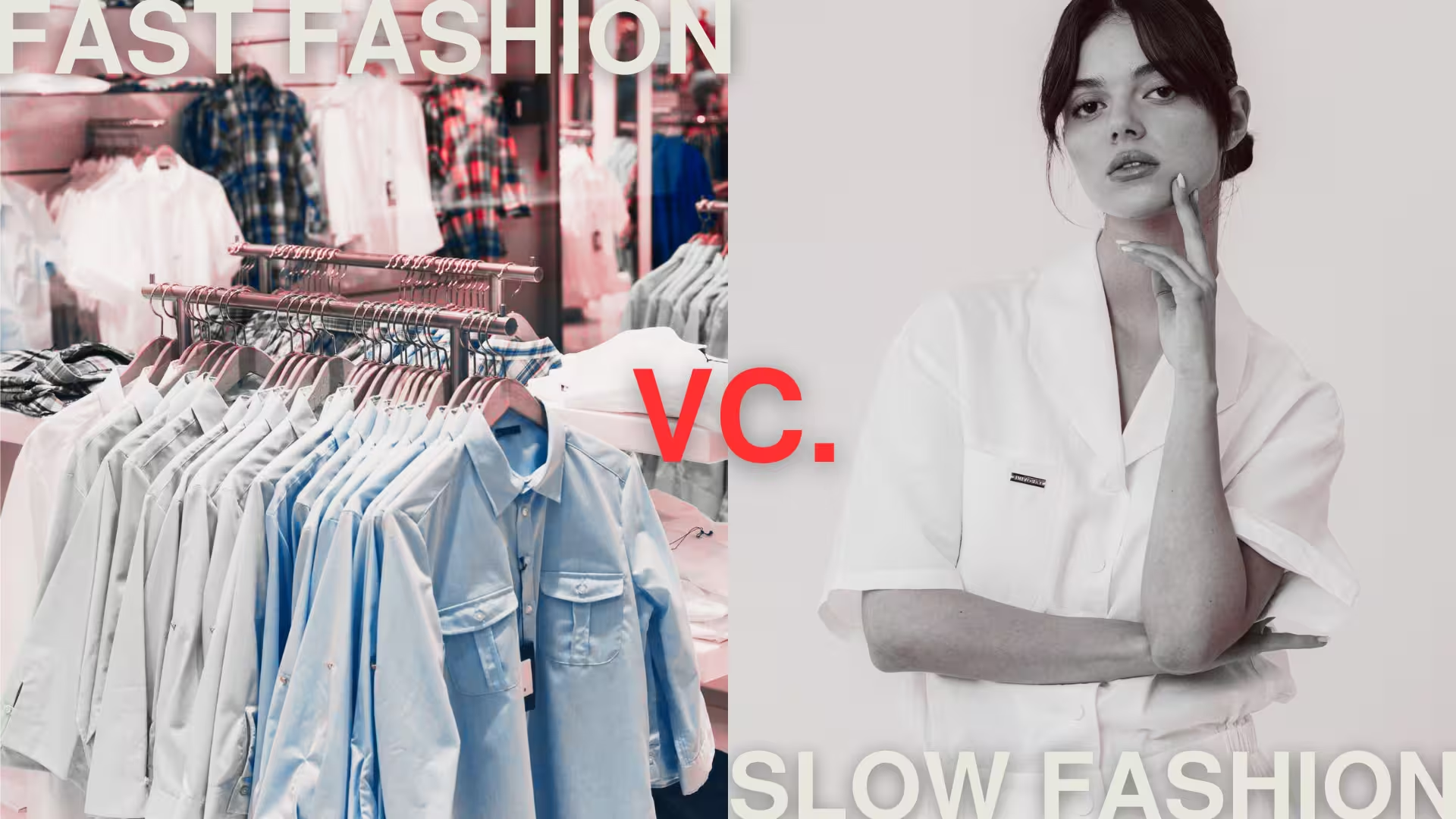In today’s hyper-connected world, defined by rapid technological advances and ever-shifting cultural landscapes, fashion has split into two distinct narratives. On one hand, fast fashion thrives on speed, low costs, and trend saturation. On the other, slow fashion advocates for sustainable, ethical, and thoughtful production. As a discerning consumer, you might find yourself drawn to the convenience of fast fashion or the meaningful ethos of slow fashion. Let’s explore these two approaches and see how brands like TAROVINE are redefining what it means to be stylish.
The Fast Fashion Frenzy
Fast fashion is a powerhouse of modern retail. It offers a continuous stream of new, affordable clothing that mirrors the latest trends from runways and influencers worldwide. The allure is undeniable—the thrill of catching a new style every week without breaking the bank. However, beneath this shiny surface lie hidden costs that affect our planet and its people.
Fast fashion is associated with mass production, using inexpensive materials and cutting corners to produce garments quickly. This approach often leads to poor-quality clothing that wears out rapidly, fueling a culture of disposability. Behind the scenes, these practices contribute to environmental degradation—intensifying textile waste and carbon emissions—and raise ethical concerns over labor conditions in factories where workers are sometimes undervalued and underpaid.
While fast fashion democratizes style, making it accessible to a broad audience, it also challenges us to consider the environmental footprint and social cost of our wardrobe choices.
Slow Fashion: A Return to Thoughtful Craftsmanship
In stark contrast, slow fashion represents a deliberate and ethical approach to clothing. It invites us to reimagine our relationship with fashion by emphasizing quality, durability, and careful production practices. Slow fashion brands focus on creating timeless pieces that transcend seasonal trends, encouraging us to invest in garments we can cherish for years rather than disposable items that quickly end up in landfills.
The philosophy of slow fashion goes beyond aesthetics. It’s a commitment to sustainability—using eco-friendly materials, reducing waste, and ensuring fair labor practices. This approach values the artistry and heritage behind each piece, fostering a more personal connection between the maker and the wearer. In essence, slow fashion challenges the throwaway mentality, promoting a cycle of mindful consumption that respects both the planet and its people.
TAROVINE: Embodying the Spirit of Slow Fashion
A shining example of slow fashion in action is TAROVINE. This brand embodies the very principles that set slow fashion apart from its fast-fashion counterpart. Here’s what makes TAROVINE a beacon of mindful style:
- Ethical Craftsmanship: TAROVINE collaborates with skilled artisans who take pride in mastering traditional techniques. Every garment is a testament to a legacy of craftsmanship and meticulous attention to detail.
- Sustainable Materials: The brand is committed to environmentally responsible production, opting for organic fabrics and recycled materials that reduce its environmental impact while ensuring superior quality.
- Timeless Designs: Instead of succumbing to fleeting trends, TAROVINE creates designs that are both classic and contemporary. These pieces are crafted to endure, both in terms of style and construction, proving that fashion can be both beautiful and sustainable.
- Transparent Practices: With an unwavering commitment to ethical production, TAROVINE ensures fair wages and humane working conditions throughout its supply chain. This transparency builds trust between the brand and its consumers, aligning shared values of respect and responsibility.
TAROVINE isn’t just a label—it’s a philosophy that encourages you to invest in quality over quantity. By choosing TAROVINE, you invest in a future where fashion champions creativity, longevity, and care for the environment.
Shaping the Future of Fashion
The tension between fast and slow fashion reflects a larger debate about what we value as consumers. Fast fashion’s rapid turnover may satisfy the desire for immediate gratification, yet it often leaves behind a trail of environmental woes and ethical concerns. Slow fashion, while sometimes commanding higher prices, offers a pathway to a richer, more meaningful relationship with our clothes—one that prioritizes quality, ethics, and sustainability.
As consumers, our choices have the power to shape the future of the fashion industry. By leaning into slow fashion and supporting brands like TAROVINE, we signal to the world that style is not just about what’s trendy today but about crafting a legacy of beauty, responsibility, and respect for the world we inhabit.
Conclusion: What’s Your Fashion Future?
The choice is ultimately ours. Will you continue chasing ever-changing trends, or are you ready to embrace a style that tells a deeper story? Fast fashion may deliver rapid satisfaction, but slow fashion offers lasting value—not just to your wardrobe, but to society and the planet.
Take a moment to reflect on your own style journey. What if every piece in your closet carried a story of ethical production, timeless design, and sustainable practices? The challenge is to align our fashion choices with our values and to support brands that strive for a better future. With every intentional purchase, you contribute to a movement that redefines beauty in the world of fashion.
What are your thoughts on this shift? Can you envision yourself investing in slow fashion brands like TAROVINE for a more meaningful, ethical wardrobe?
TAROVINE Members Club
Sign up to join the TAROVINE Members Club for exclusive content, events, promotions, and more.




